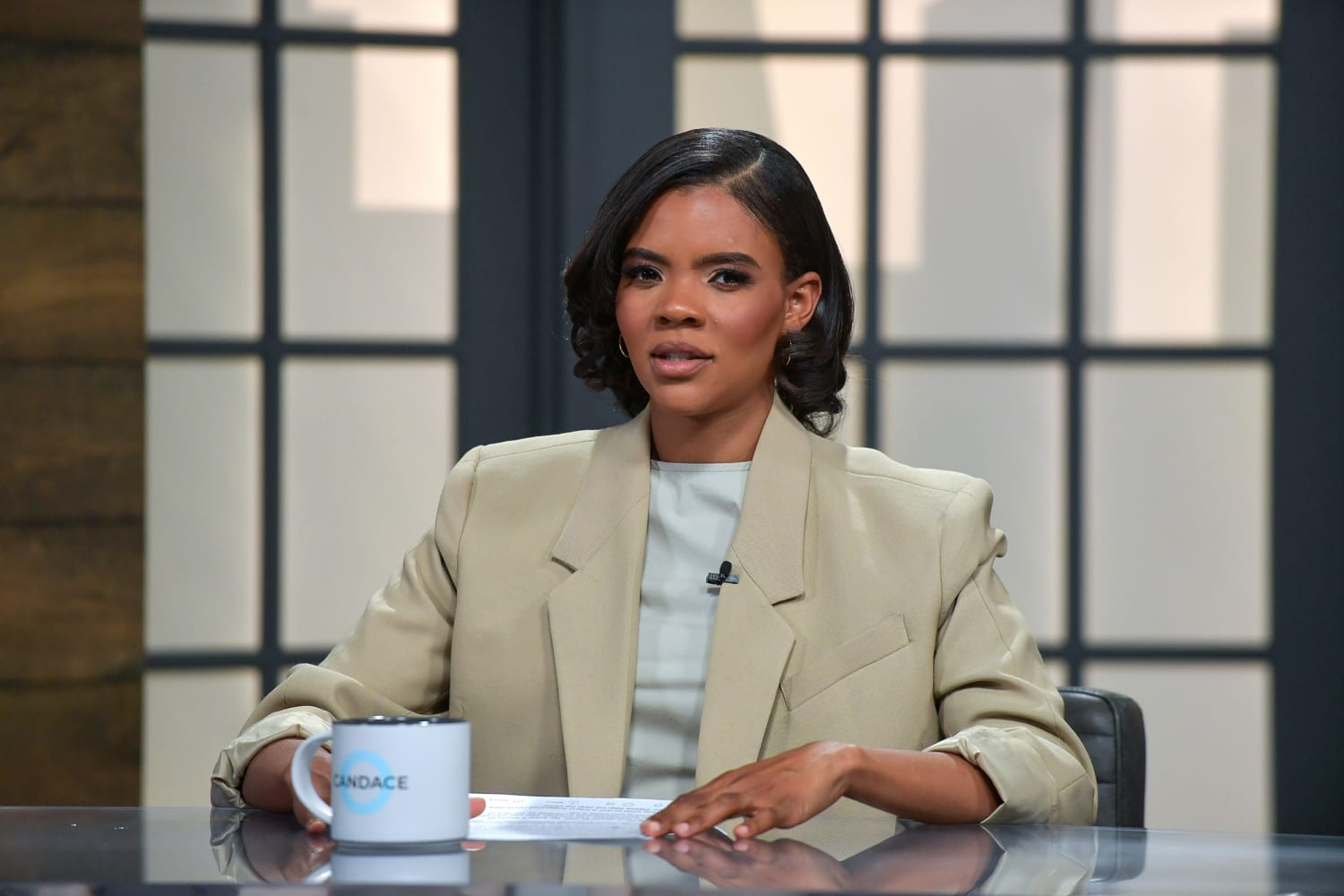
Conservative commentator Candace Owens has recently intensified her stance against transgender athlete Lia Thomas's participation in women's sports, labeling it a "violation of women's rights" and calling for Thomas's exclusion from female competitions.
Lia Thomas, a transgender swimmer who previously competed on the University of Pennsylvania men's team, began participating in women's events after undergoing hormone therapy as part of her transition.
Her successes in these competitions have ignited a national debate over the inclusion of transgender athletes in women's sports, with arguments centering on fairness, competitive integrity, and the rights of transgender individuals.
Owens, known for her conservative viewpoints and activism, has been vocal in her opposition to Thomas's participation. In a recent broadcast, she stated, "This is not fair; it is a complete violation of women's rights.

We have spent decades fighting for equality in sports, for women to have equal opportunities, and now we are allowing men to compete in women's competitions under the guise of gender reassignment surgery, where they have a clear physical advantage. This has to stop now."
Owens's comments have resonated with a segment of the public concerned about maintaining fairness in women's sports.
Supporters argue that allowing transgender women to compete in female categories undermines the progress made in women's athletics by introducing competitors who may retain physical advantages from male puberty, despite hormone therapy.
Conversely, advocates for transgender inclusion in sports emphasize the importance of recognizing and affirming gender identity. They argue that excluding transgender athletes like Thomas from women's sports constitutes discrimination and violates principles of inclusivity and equality.

The scientific community remains divided on this issue. Some studies suggest that transgender women may retain certain physiological advantages even after hormone therapy, while others indicate that hormone treatment can significantly reduce these advantages.
Joanna Harper, a researcher of transgender athletic performance, notes that while trans women are, on average, taller and stronger than cis women, they also face potential disadvantages due to reduced muscle mass and aerobic capacity post-transition.
The debate has reached beyond individual opinions, influencing policy decisions in sports organizations. In June 2022, the International Swimming Federation (FINA) voted to restrict transgender athletes from competing in women's elite events unless they had transitioned before the age of 12.
This decision effectively bars Thomas from participating in certain international competitions.
In the United States, the conversation has permeated political spheres, with various states enacting laws to limit transgender athletes' participation in sports aligning with their gender identity.
As of June 2022, multiple states have implemented such restrictions, reflecting the contentious nature of the issue nationwide.
Social media platforms have become battlegrounds for this debate, with hashtags both supporting and opposing Owens's stance trending periodically. Public figures, athletes, and activists continue to weigh in, highlighting the deep divisions and strong emotions associated with the topic.

As the discourse evolves, it underscores the broader societal challenge of balancing inclusivity with fairness.
While the inclusion of transgender athletes in sports aims to affirm individual identity and promote equality, concerns about competitive integrity and the preservation of women's sports persist.
In conclusion, Candace Owens's call to ban Lia Thomas from women's sports amplifies an ongoing and complex debate at the intersection of gender identity, athletic competition, and women's rights.
As society grapples with these issues, finding a resolution that honors both inclusivity and fairness remains a formidable challenge.





-1741838124-q80.webp)